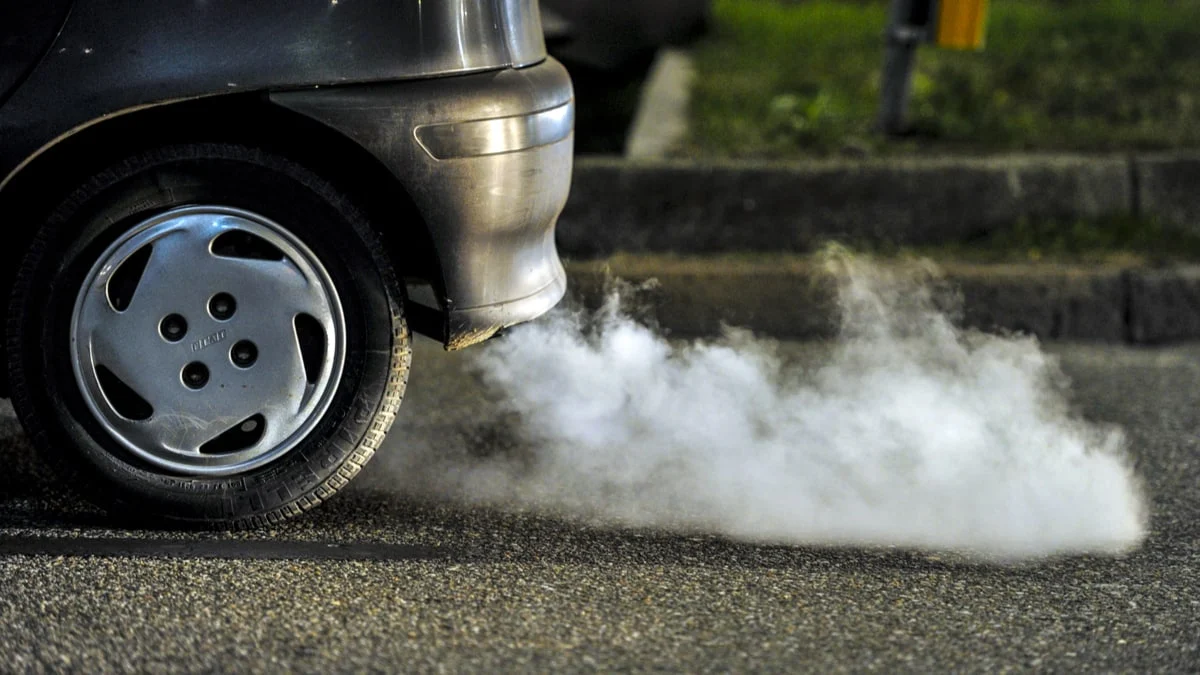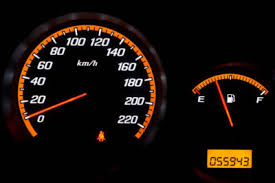As a car or motorcycle owner, you know that a properly balanced air and fuel mixture is crucial for the smooth running of your engine. However, sometimes the mixture can become too rich, which can lead to a variety of problems. Knowing the signs of a rich mixture can help you address the issue before it causes damage to your engine.
Here are seven signs that your air and fuel mixture may be too rich:
Contents
- 1 Check-Engine Light On
- 2 Black smoke coming from the exhaust:
- 3 Low fuel economy:
- 4 Difficulty starting:
- 5 Engine Rough idle:
- 6 Engine Performance Problems:
- 7 Black Spark Plugs:
- 8 Failure of Emissions Test:
- 9 Fuel smell:
- 10 What are the Symptoms of a Rich Fuel mixture In an Engine
- 11 FAQs
- 12 Final Words
Check-Engine Light On
If your vehicle’s exhaust contains an excessive air-to-fuel ratio, the check engine light will be on. Your vehicle’s Engine Control Unit (ECU) receives exhaust-related data from numerous sensors. An excessively rich air-to-fuel ratio will force excess gas into the exhaust, and the ECU will warn you via the check engine light.
Black smoke coming from the exhaust:
One of the most obvious signs of a rich mixture is black smoke coming out of the exhaust. This is caused by excess fuel not being burned completely, and instead, being expelled through the exhaust as unburnt fuel.
Low fuel economy:
A rich mixture means that more fuel is being used than necessary, which can lead to decreased fuel efficiency. If you’ve noticed that you’re filling up your gas tank more often than usual, it could be a sign that your mixture is too rich.
Difficulty starting:
A rich mixture can make it harder for your engine to start, especially in cold weather. The excess fuel can flood the cylinders, making it harder for the spark plug to ignite the fuel-air mixture.
Engine Rough idle:
If the air and fuel mixture is too rich, it can cause the engine to run rough or hesitate at idle. You may notice your engine “bucking” or shaking, especially when sitting at a stop light.
Engine Performance Problems:
Similarly, a rich mixture can cause your engine to stall, especially when slowing down or coming to a stop. This is because the excess fuel can cause the engine to flood, and prevent it from running.
Engine “pinging” or “knocking”: Excess fuel in the mixture can cause the fuel to ignite prematurely, causing a “pinging” or “knocking” noise in the engine. This is known as detonation and can cause damage to the engine if it is not addressed.
Black Spark Plugs:
If your engine has a high air-to-fuel ratio, black deposits will form at the bottom of the spark plugs. This hinders their ability to operate efficiently. This black deposit will migrate to other engine components, causing additional damage.
The unburned fuel will eventually reach the catalytic converter, where it will clog it due to the abundance of contaminants. You will eventually need to disassemble and replace it.
Failure of Emissions Test:
A rich fuel mixture can cause the catalytic converter to be overloaded. The presence of excessive carbon monoxide in your vehicle’s exhaust will lead it to fail an emissions test if the overloaded converter is unable to perform its function adequately.
In addition, excessive carbon monoxide emissions cause a health danger, especially if they begin to leak into the vehicle while the driver is behind the wheel. If you breathed in these gases for only a few minutes, you may sustain severe neurological damage.
Fuel smell:
If you can smell fuel inside or outside of the vehicle, it could be a sign that the mixture is too rich, and that fuel is not being burned properly.
It’s worth noting that these signs are not exclusive to a rich mixture, they can be caused by other problems too. To confirm that the mixture is too rich you need to check the air/fuel ratio, by using an OBD2 scanner or by checking the spark plug color, if it is a dark brown or black, that may indicate that the mixture is too rich, or a very light tan color, it may indicate that the mixture is too lean.
What are the Symptoms of a Rich Fuel mixture In an Engine
There are several reasons why an engine might be running rich:
A malfunctioning oxygen sensor:
The oxygen sensor measures the amount of oxygen in the exhaust and sends a signal to the engine’s computer to adjust the fuel mixture accordingly. If the sensor is malfunctioning, it may not be sending the correct signal, causing the engine to run rich.
A clogged air filter:
An air filter that is clogged with dirt and debris can restrict airflow to the engine, causing the engine to compensate by adding more fuel to the mixture, resulting in a rich mixture.
Leaking fuel injectors:
Fuel injectors can become worn or damaged over time, causing them to leak fuel into the engine, resulting in a rich mixture.
Vacuum leaks:
A vacuum leak can occur when a vacuum hose or gasket is cracked or not sealed properly, allowing unmetered air to enter the engine. This can cause the engine to run rich.
Dirty or old spark plugs:
Spark plugs that are dirty or worn out can cause the engine to misfire or run poorly, resulting in a rich mixture.
Incorrectly calibrated fuel pressure regulator:
The fuel pressure regulator makes sure to keep the fuel pressure at the desired level for efficient combustion, if it’s calibrated incorrectly it may increase the fuel pressure and the engine will run rich.
FAQs
How do you know if fuel mixture is too rich?
If the mixture is too lean, no color is produced, but a rich combination causes the fuel ring to become more visible. Overly rich combinations will cause the plug to seem sooty.
What can indicate a rich air/fuel mixture?
The primary signs of a rich gasoline mixture include the check engine light, gasoline odors, low fuel economy, a surging or flooding engine, a failed emissions test, and soot on the spark plugs.
Can a rich-running engine damage the engine?
Yes, a rich running engine can damage the engine over time by building up carbon, decreasing efficiency, causing misfires, and increasing wear and tear.
Final Words
In conclusion, having a balanced air and fuel mixture is crucial for the smooth running of your engine. If you notice any of these signs, it’s important to address the issue as soon as possible, to prevent further damage. A qualified mechanic can help diagnose and fix the problem, and regular maintenance can help prevent issues with the air and fuel mixture.
Kamran Hussain is a motorcycle enthusiast and expert with over 5 years of experience in the industry. As a seasoned rider, he has a deep understanding of the motorcycle market and is dedicated to helping riders find the best bikes and gear to suit their needs.
Kamran Hussain has written extensively on motorcycle topics, including buying guides, product reviews, and maintenance tips. With his comprehensive knowledge of the industry, he is a trusted source for motorcycle enthusiasts seeking reliable information and advice.







